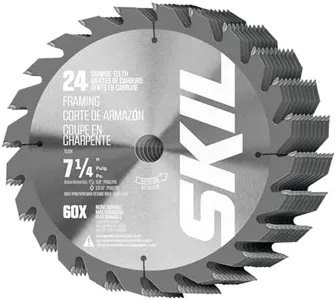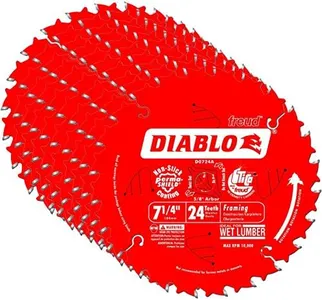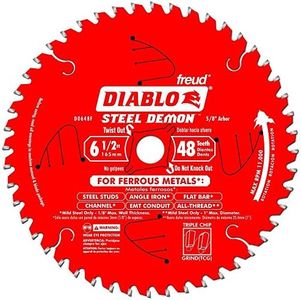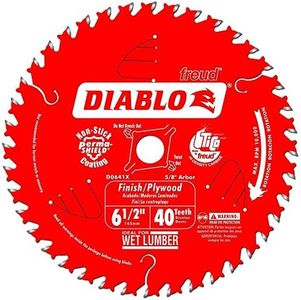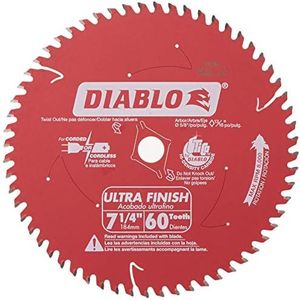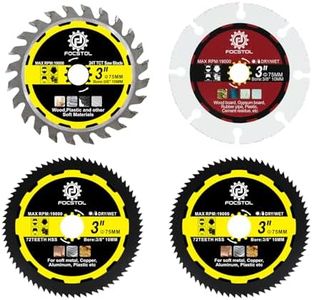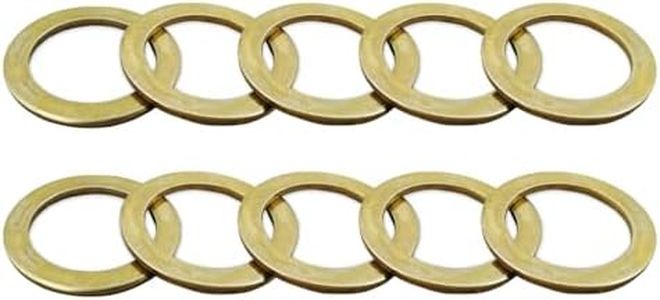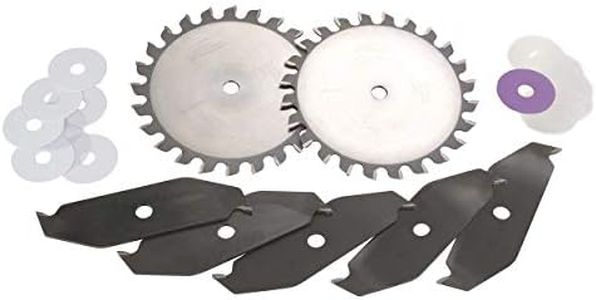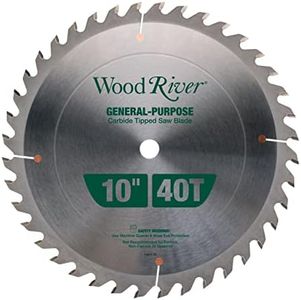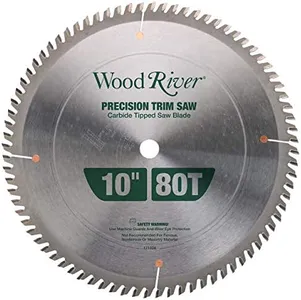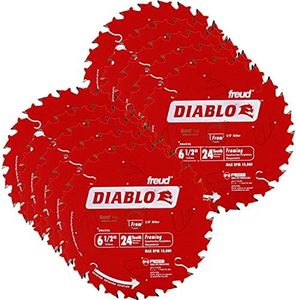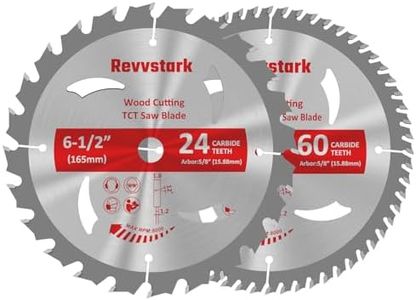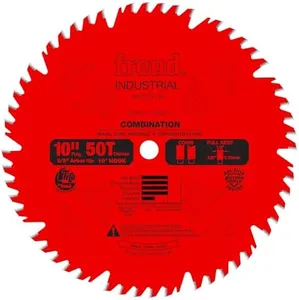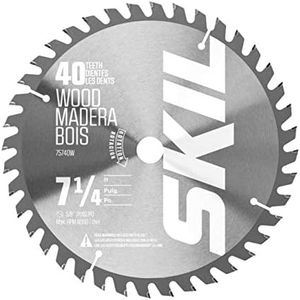10 Best Circular Saw Blades 2026 in the United States
Our technology thoroughly searches through the online shopping world, reviewing hundreds of sites. We then process and analyze this information, updating in real-time to bring you the latest top-rated products. This way, you always get the best and most current options available.

Our Top Picks
Winner
SKIL 7-1/4 in. 24-Tooth Carbide Framing Circular Saw Blade, 10-Pack-75724-10
The SKIL 7-1/4 inch circular saw blade with 24 carbide teeth is designed mainly for framing and general wood cutting tasks. Its tooth configuration uses alternating top bevel (ATB) teeth, which helps deliver smoother cuts in wood and reduces chip-out. The blade is made with titanium carbide teeth, making it quite durable and able to maintain sharpness over time. A clear anti-stick coating lowers friction and heat, which not only helps with cleaner cuts but also protects the blade from rust and wear.
The thin kerf design means it removes less material during cutting, helping your saw spin faster and use less power—this is especially helpful if you are using a cordless saw. Features like anti-kickback shoulders and expansion slots help improve cutting accuracy and reduce vibration, making the blade safer and easier to control. On the downside, the 24-tooth count is on the lower side if you are looking for super fine or finish cuts; it’s really optimized for faster, rougher cuts typical in framing rather than precision woodworking. Also, the blade thickness at 0.25 inches might be a bit thicker compared to some ultra-thin blades, possibly leading to slightly more material waste.
This blade represents a strong choice for homeowners and contractors who need a tough, reliable saw blade for framing and general wood cutting but may not be the best fit for fine finishing work.
Freud D0724A Diablo 7-1/4-inch 24T ATB Thin Kerf Framing Saw Blades, 10-Pack
The Diablo D0724A 7-1/4" 24T Circular Saw Framing Blade is a dependable choice for those working with engineered wood. One of its main strengths is its construction material; the blade is made from carbide, which is known for its durability and ability to maintain sharpness over time. The kerf width of 0.059 inches allows for precise cuts with minimal material wastage.
With a blade diameter of 7-1/4 inches and 24 teeth, it is well-suited for framing tasks, providing a good balance between speed and smoothness of cuts. The blade’s tooth configuration supports efficient cutting through engineered wood, making it a suitable option for general carpentry and construction projects. Additionally, the blade’s relatively light weight (0.45 pounds) makes it easy to handle, reducing user fatigue during prolonged use.
However, with only 24 teeth, the blade might not be the best choice for tasks requiring extremely fine or clean cuts such as finish work. Users looking for versatility across a wider range of materials may need to look for other blades as this one is optimized primarily for engineered wood. The Diablo D0724A excels in durability and efficient cutting for framing tasks in engineered wood, making it a practical choice for carpenters and builders who prioritize robust performance in specific woodworking tasks.
Freud Diablo D0648CFX 6-1/2" x 48 Teeth Demon Ferrous Cutting Circular Saw Blade
Most important from
4559 reviews
The Diablo Steel Demon Cermet II is a 6-1/2 inch circular saw blade designed specifically for cutting metals and stainless steel. It has 48 tooth count with a triple-chip grind (TCG) configuration, which is great for smoother, cleaner cuts on hard materials. The .061 inch kerf width strikes a good balance between material removal and reduced waste, while its carbide teeth enhanced with advanced cermet (ceramic and metallic) offer excellent durability—lasting up to 25 times longer than standard blades. This means fewer blade changes and less downtime.
One standout feature is its ability to make cooler cuts, reducing heat buildup that can discolor metals. This helps maintain the quality of your workpiece. It also cuts faster—up to 10 times quicker compared to traditional grinding discs—which can be a big time saver on metal projects. Precision is improved thanks to a laser-cut stabilizer vent system that minimizes vibration and noise, resulting in straighter cuts that require less rework. The blade’s Perma-SHIELD coating adds protection against heat and corrosion, extending its lifespan. It fits a 5/8-inch arbor and works with both cordless and corded circular saws, making it versatile for professionals and DIY users. The 0° hook angle supports controlled cutting without aggressive feed, suitable for metals.
The blade’s relatively thin kerf and high tooth count mean it’s optimized for precision and clean cuts rather than heavy demolition work. It may not be the best choice if you need extremely fast, rough cuts or are working with very thick metals regularly. Also, its specialty design for metal cutting means it’s not suitable for wood or other softer materials. The Diablo Steel Demon Cermet II is a durable, precise, and efficient blade tailored for metal and stainless steel cutting, perfect for users who value clean, fast cuts with minimal heat damage.
